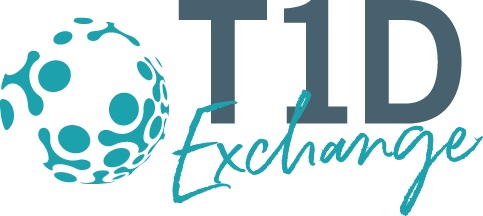
Summer 2019
How to Participate in Type 1 Diabetes Research: An Introduction to the T1D Exchange Registry
Allyson S. Hughes, PhD; Diabetes SIG Co-Chair

Type 1 diabetes is an intensive chronic condition involving self-management of blood glucose, insulin dosing, exercise and food.1 More than a million people have type 1 diabetes in the United States.2 That number is expected to rise to 5 million by 2050. Importantly, less than a third of people with type 1 diabetes meet target blood glucose management goals.3 In the last 30 years there has been a significant change in technology used to manage type 1 diabetes.4 The T1D Exchange Registry, a web-based platform, is an innovative research study using data collected from adults and children with type 1 diabetes. The purpose is to improve the lives of people with type 1 diabetes by providing a platform to drive meaningful treatment, care, and policy with the goal of harnessing real-world data from the type 1 diabetes community. Participants will also have the ability to take part in more research opportunities in the future. The typical clinical trial environment fails to reflect the reality in which the drug or medical device may be used outside of the lab, and there may be entire groups of people missing from the analysis. Real-world evidence can fill in knowledge gaps of how a new drug or device is being used in the real world.
The Registry aims to give people with type 1 diabetes and their supporters opportunities to participate in the latest T1D Exchange-sponsored or affiliated research with the goal of accelerating care solutions and influencing public policy and insurance coverage. The Registry is already filling gaps, despite launching less than 6 months ago. “It’s been really exciting to see the diversity of experiences from participants who have joined in the early days,” says Wendy Wolf, PhD, director of the T1D Exchange Registry. “Even geographically, we already have participants from 43 states in the U.S. and 1 territory.” Specifically, the Registry will develop a more accurate snapshot of the type 1 diabetes population nationally. These answers can hopefully help advance the discovery and development of new treatments for type 1 diabetes, and inform future policy and insurance decisions. Participants will also be offered opportunities to take part in additional studies related to type 1 diabetes through this Registry - endless possibilities for new discoveries, which can evolve as the needs of the type 1 diabetes community’s needs evolve.
T1D Exchange expects to offer the following to researchers in the future: 1) datasets from the Registry cohort or specific sub-populations, 2) sponsored research opportunities, including the ability to submit a sub-study to the Registry cohort as a whole or from specific sub-populations and 3) clinical trial awareness and recruitment. For more information or if you want to join the T1D Exchange as a participant, contact registry@t1dexchange.org or go to https://t1dexchange.org/research/registry/.
References
- American Diabetes Association (2018, November). Living with Type 1. Retrieved from http://www.diabetes.org/living-with-diabetes/recently-diagnosed/living-with-type-1-diabetes.html?loc=lwd-slabnav
- American Diabetes Association (2018, March). Statistics about Diabetes. Retrieved from
- http://www.diabetes.org/diabetes-basics/statistics/
- JDRF (2015, January). Type 1 Diabetes Facts. Retrieved from https://www.jdrf.org/t1d-resources/about/facts/
- Gonder-Frederick, L. A., Shepard, J. A., Grabman, J. H., & Ritterband, L. M. (2016). Psychology, technology, and diabetes management. American Psychologist, 71(7), 577.